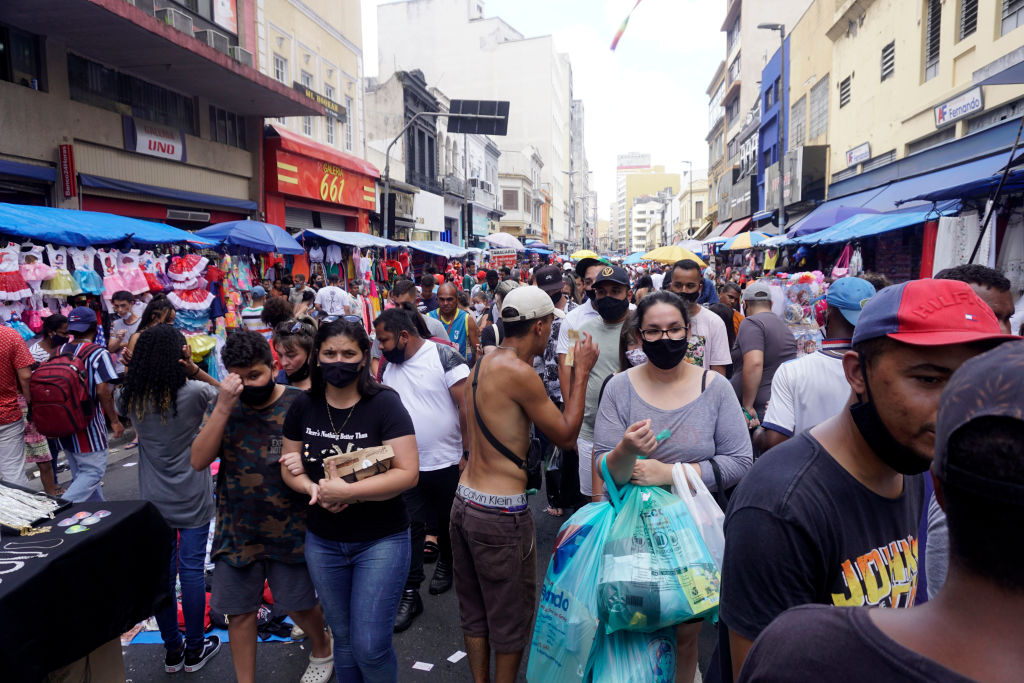As the world struggles to emerge from the COVID-19 pandemic, Latin American governments are missing opportunities to attract foreign investors crucial to an eventual economic rebirth. One of them is to settle old investment disputes sooner rather than later.
Latin America was the world’s only region to register zero economic growth in 2019, on average. Then it experienced the largest relative drop in real GDP of pandemic-driven 2020 – a collapse of at least 7% versus an emerging-markets average contraction of less than 3%. Chances are that the nature of the ongoing recovery will be neither inclusive nor sustainable, with the return to mediocrity featuring mostly jobs created in the underground economy, children robbed of two years’ education, a shrunken middle class, and income inequalities looking worse than in 2019.
To be sure, every crisis has the potential to become an opportunity. To address long-term GDP losses and the rise in inequality, the IMF is rightly recommending governments improve their business and investment climates and adopt policies that reverse the setback to human capital accumulation, encourage job creation, and facilitate worker reallocation (e.g., from non-wired to wired activities).
Time to settle more investment disputes
As the pandemic’s impact on jobs and income lingers – and looks likely to do so through 2024 – Latin American governments should start taking steps to improve their reputation and business climates by settling the many disputes that have languished at the International Center for Settlement of Investment Disputes (ICSID, located in Washington DC) and at the Permanent Court of Arbitration (PCA, in The Hague). These are open wounds that need to be healed.
Since the late 1990s, foreign investors have brought nearly 1,100 cases against some 120 countries, but two of the three most frequent targets are Argentina and Venezuela, and the two regions targeted most often are Latin America and Eastern Europe/Central Asia. The right of foreign individuals and corporations to present claims against governments in specified arbitration courts is a feature of virtually all of the more than 3,000 bilateral and multilateral investment and trade treaties signed since the late 1980s. One exception is Brazil, which has never ratified an international investment treaty providing for investor-state dispute settlement.
In order to attract foreign investors to countries with weak legal systems, tarnished judiciaries or unstable politics, the treaties offer legal rights including fair and equitable treatment, free transfer of investment funds in or out, and protection from direct or indirect expropriation without full compensation. Arbitration tribunals can’t overturn local policies or laws as they resolve investment conflicts – but they can grant monetary damages to investors adversely affected by those laws and policies.
As of mid-2020, 740 cases had been closed, with 37% decided in favor of the host state, 29% in favor of the investor, and 20% of the cases settled out of court. The rest were dropped or otherwise discontinued.
At ICSID alone, 85 cases are currently pending against various Latin American governments, a number of which were filed over a decade ago. The five Latin American countries most frequently beset by complaints by foreign investors – Argentina, Venezuela, Mexico, Peru, and Colombia, in that order – have settled fewer than 6% of their cases. Thus, they have ample room to generate needed goodwill by settling many more.
A few examples of the cases in question include the claim by ICS Inspection and Control Services Ltd., a United Kingdom investor, that the government of Argentina failed to pay invoices under a contract in which ICS was to provide auditing services of imports bound for the country before they were shipped. Luis García Armas, a Spanish investor, alleges that the government of Venezuela expropriated without compensation his investments in four food-processing companies. Alicia Grace and other U.S. citizens and entities claim that the Mexican state-owned oil company Pemex terminated early their lease agreements for five offshore oil-drilling platforms they owned. Enagás and Enagás Internacional, Spanish companies, allege that the government of Peru cancelled a concession contract to build a natural gas pipeline. And Astrida Carrizosa, a U.S. and Colombian citizen, claims that her investment in Banco Granahorrar was wiped out when the government of Colombia placed it under new management, nationalized it, and later sold it without compensation.
The costs and benefits
Settling any of the outstanding cases in arbitration will entail a fiscal cost but will also generate fiscal savings. When the claimant succeeds in one of these international arbitrations, the average award, on the basis of a sample of over 300 cases, has been on the order of $75 million, a fraction of the approximately $500 million claimed. Therefore, investors are prepared to negotiate large discounts from headline claim numbers. But settling claims early on also provides budgetary savings, and not just relative to a potential award favorable to the claimant. It saves tens or even hundreds of millions of dollars because keeping all these many cases running for 5, 10 or even 15 years runs up enormous bills on account of fees continuously payable to U.S. and European attorneys, expert witnesses, arbitrators and staff, venue rental, and flights and hotels.
A landmark study of decision-making among multinational investors showed that the rule of law is among their top-three considerations when making foreign investment decisions, coupled with the ease of doing business and political stability. Nearly 90% of investors surveyed said that a tradition of strong rule of law is either “essential” or “very important” to decision-making. And yet, the Rule of Law Index updated annually by the World Justice Project shows that, in 2020, only Uruguay, Costa Rica, and Chile (in that order) were ranked among the world’s top-third of law-abiding countries. Nine Latin American countries, including Mexico and Venezuela, were ranked in the world’s bottom-third group.
All things considered, settling a larger portion of international arbitration claims would seem to be a timely and cost-effective way for governments in Latin America to improve their reputation and business climate, positioning their countries for a better-than-otherwise, investment-led recovery from the pandemic.
—
Porzecanski is on the faculty of American University’s School of International Service, in Washington DC. Prior to moving to academia in 2005, he had a long and distinguished career as an international economist on Wall Street, specializing in emerging markets.









